Many people, myself included, consider 1999 to be the best movie year ever. I’m even reading a book called just that. It seemed like the last time multiple studios were willing to gamble on unique visions and give sizable budgets to things that weren’t based on previously existing properties. So I figured 2019 was the perfect time to kick off a project picking the 20 best movies from 20 years ago. Unfortunately, with so much time devoted to Best of the Decade posts, that can got kicked down the road. Better late than never, I suppose.
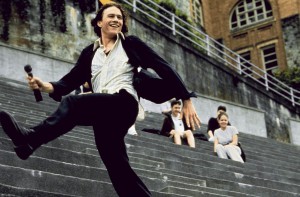
20. 10 Things I Hate About You (dir. Gil Junger)
Were it not for Amy Heckerling’s Clueless, this would be the best high school movie of the ’90s. I’m sure it’s not a coincidence both are based on classic British literature. This ultra-hip (loose) adaptation of Shakespeare’s The Taming of the Shrew has the unstoppable charm of its main cast, including the late Heath Ledger, but it’s also got a murderer’s row of a bench, with the likes of Larry Miller, Allison Janney and Daryl “Chill” Mitchell providing even more laughs as the adults who are just as immature as the kids. It’s also got an all-time villain in Andrew Keegan’s Joey, a skeevy, vain senior, who responds to a well-deserved punch in the face with, “Shit, Bianca! I’m shooting a nose spray commercial tomorrow!”
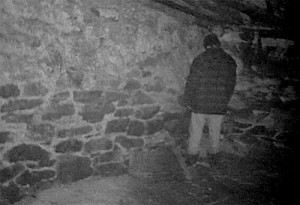
19. The Blair Witch Project (dirs. Daniel Myrick, Eduardo Sánchez)
When it came to pre-social media discussions, only Star Wars: Episode I – The Phantom Menace was talked about more. While this low-budget found footage horror flick ended up as the most profitable movie of all time, it didn’t do much for me when I saw it on VHS as a kid. But once you know its tricks, you’re far more open to appreciating its craft (exceptional for first-time feature directors) and how a bunch of drunk assholes getting lost in the woods is actually a more terrifying and realistic scenario than whatever evil it is they find out there. But then and now, its shocking ending strikes a nerve.
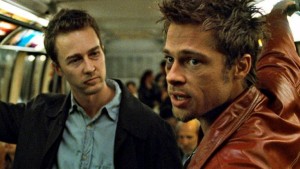
18. Fight Club (dir. David Fincher)
It’s best to view David Fincher’s adaptation of Fight Club as a movie about cults. The misguided men who follow Tyler Durden (Brad Pitt, magnetic and slyly hilarious) aren’t any smarter after learning about the evils of capitalism and consumerism. They end up picking fascism, blindly following Tyler just like they were the banal lifestyles they were living before. They’d rather show off with brash, pointless stunts and beat the shit out of each other than actually cause a revolution. But I guess that’s why it’s just called Project Mayhem. It’s not wrong that so many college bros are obsessed with this movie. It’s got exceptional craft and it’s a vast improvement over its source material. But like the members, they’re too blind to see beyond how cool it is.
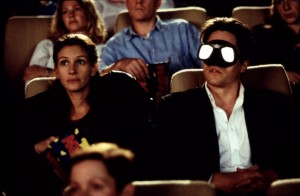
17. Notting Hill (dir. Roger Michell)
The platonic ideal of the ’90s romantic comedy, Notting Hill has it all: Pitch-perfect performances and chemistry between its two leads (Julia Roberts and Hugh Grant), a goofy roommate/best friend (Rhys Ifans), and Richard Curtis’s richly drawn supporting characters (including future lord Hugh Bonneville). While its climactic line has often been mocked, I’m just a critic, standing before my readers, reminding them it’s perfect.
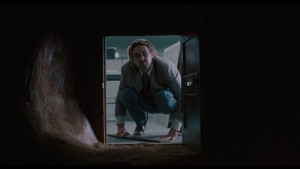
16. Being John Malkovich (dir. Spike Jonze)
A comedy so overflowing with ideas that some of them spill over and don’t get resolved, the brilliant marriage of Charlie Kaufman’s script and Spike Jonze’s direction explodes into the most creative film of 1999. Unlike the future world of Her, pretty much everyone in Being John Malkovich is a selfish prick, pushing everyone in their small space out of the way to get a little bit of a new experience. The cast is turning in some of their best work, but the movie wouldn’t get to that next level without John Malkovich’s wild turn as himself.
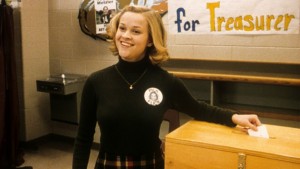
15. Election (dir. Alexander Payne)
As humorists try to wring something, anything out of our current climate, Jim Taylor and Alexander Payne were nailing the ultimate political satire in their adaptation of Tom Perrotta’s novel. Reese Witherspoon shines as Tracy Flick, a straight-A student who wants to be class president. Not because she has any radical ideas or brilliant policies, but because it will be another feather in her cap on her way to a prestigious school. Standing in her way are a petty teacher (Matthew Broderick, marvelously pathetic), the dim-bulb athlete he recruits to run against her (Chris Klein), and the jealous sister (Jessica Campbell) who enters as a third-party candidate, rightfully pointing out no one’s lives will be measurably improved by either of them. The jokes cut more sharply here because all of its characters have devious ulterior motives (except naive Paul), making it all the more representative of our elected leaders.
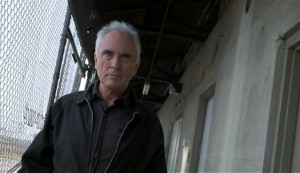
14. The Limey (dir. Steven Soderbergh)
Soderbergh’s lean revenge thriller becomes something more powerful thanks to its unusual editing techniques, its curdled vision of Laurel Canyon artists, and its crucial decision to include flashbacks in the form of scenes from Ken Loach’s Poor Cow. Terence Stamp is phenomenal as the lifelong criminal who travels to L.A. to hunt down his daughter’s killer, using his confidence and daring when he’s outnumbered and outmatched. Think of it as Taken for people who subscribe to the Criterion Channel.
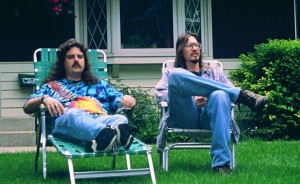
13. American Movie (dir. Chris Smith)
Few scripted films are funnier than Chris Smith’s essential documentary. Mark Borchardt is a Wisconsin burnout working with limited funding and even more limited talent to finish Coven, a black-and-white horror short, hoping to turn what he sees as its inevitable success into financing for Northwestern, a feature-length Gen X epic. Alas, between back taxes, child support, poor carpentry skills and a lack of time, the rush to finish Coven never feels like a sure thing. But the marvelous cast of characters (including the sublime Mike Schenk, with a flowing mane of hair and a never-ending supply of drug stories) keep you laughing and keep you rooting for Mark the whole way.
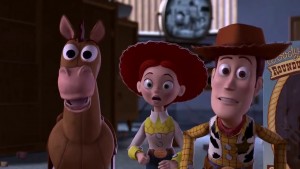
12. Toy Story 2 (dir. John Lasseter)
Initially slated to go straight-to-video, Pixar eventually put all their resources into their first sequel ever (and first of three sequels to Toy Story). While Woody’s quest for belonging would continue to be explored in 3 and 4, it’s most poignantly told here, as he learns he’s part of a collector’s series of Western-themed toys tied into the Howdy Doody-esque Woody’s Round-up. Its smartest choice is introducing Jessie, terrifically voiced by Joan Cusack, responsible for the first classic Pixar tear-jerker.
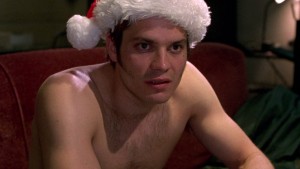
11. Go (dir. Doug Liman)
After this, Liman would exclusively direct big-budget fare, but he went out on a high note with this low-budget (and occasionally permit-free) dark comedy about drug pushers and users, and their intersecting lives on Christmas Eve. Sarah Polley plays a broke cashier out of her depth in the rave scene, her co-worker (Desmond Askew) has ditched work for a crazy Vegas weekend, and two actors (Jay Mohr and Scott Wolf) are forced to work a drug bust for a handsy detective (William Fichtner). Connecting them all is Todd (Timothy Olyphant), the charming dealer who can turn menacing on a dime. Seen initially as a Tarantino knock-off (the DVD cover even boasts a pull-quote from Entertainment Weekly calling it “Son of Pulp Fiction“), it’s endured because of its excellent cast, terrific soundtrack and go-for-broke energy.
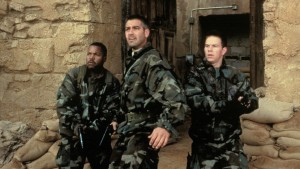
10. Three Kings (dir. David O. Russell)
A war satire so vicious I’m still amazed it was released by a major studio, Three Kings feels as relevant today as it did then, partly because, of course, the U.S. can’t stop getting into armed conflicts in the Middle East. A sort of Gulf War Treasure of the Sierra Madre, three soldiers (George Clooney, Mark Wahlberg and Ice Cube) discover a vault of illegally seized Kuwaiti gold and try to keep it for themselves. Unsurprisingly, they keep fucking things up.
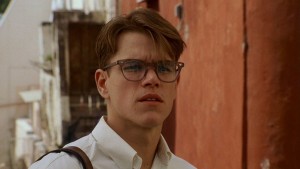
9. The Talented Mr. Ripley (dir. Anthony Minghella)
For my money, this is still Matt Damon’s best performance, and perhaps the perfect encapsulation of what made 1999 so special, at least for moviegoers of discerning taste. Big budget literary adaptations have gone out of vogue (unless you count comic books), but 20 years ago they were everywhere. Of course, some weren’t up to the challenge, but Minghella’s adaptation is one of those rare movies where every single aspect, from acting to production design to costumes to cinematography is perfect. Damon plays the titular character, a nobody who insinuates himself in the life of a somebody, telling one lie that snowballs from there, eventually crushing everyone in its path.
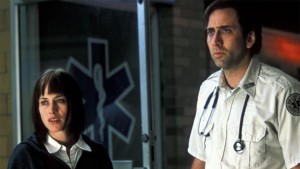
8. Bringing out the Dead (dir. Martin Scorsese)
One of the master’s least-loved films, it was already a powerful experience when I saw it for the first time last year. But in the era of Coronavirus and opioids, it becomes even more poignant. Nicolas Cage, in one of his best performances, plays an overworked New York paramedic, juggling insomnia, guilt and annoying co-workers, all while trying to forge a connection with the daughter (Patricia Arquette) of a patient. It’s the rare movie that gives both life and death the weight they deserve.
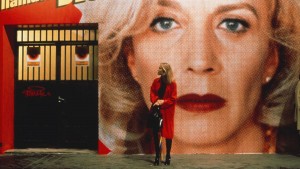
7. All About My Mother (dir. Pedro Almodóvar)
Almodóvar certainly didn’t tone anything down for his first Oscar winner, but his colorful characters are in something closer to the real world than many of his previous efforts. Cecilia Roth is extraordinary as the bereft mother who goes on a journey of self-discovery after her son is killed in a car accident. She reconnects with the boy’s father (Toni Cantó), tracks down the actress her son admired (Marisa Paredes) and bonds with an HIV-positive nun (Penélope Cruz, absolutely wonderful). Part of what makes the movie so special is Almodóvar’s commitment to being non-judgmental about his character’s choices, only interested in how they plan on coping with the challenges before them.
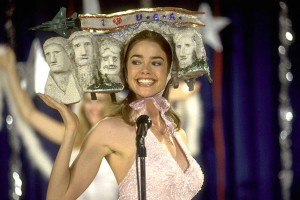
6. Drop Dead Gorgeous (dir. Michael Patrick Jann)
Can I list all the reasons I think this is the greatest comedy of 1999? Amer-I-Can! (But we don’t have that kind of time.) All you need to know is this mockumentary about a small town beauty pageant – and the deadly lengths some will go to for a victory – has line for line, scene for scene, provided me more laughs over the last two decades than most films. Nailing the faux-polite behavior, the subtle class warfare, the repressed sexuality and the casual racism prevalent in rural life, it’s a perfect comedic firecracker, with Allison Janney’s scene-stealing Loretta the accelerant.
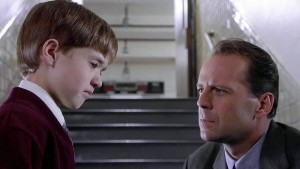
5. The Sixth Sense (dir. M. Night Shyamalan)
While he’s something of a punch line now, there’s no denying the sheer phenomenon of M. Night Shyamalan and The Sixth Sense. It was No. 1 for five straight weeks, and received six Academy Award nominations. Its twist ending and iconic line (“I see dead people.”) were on the lips of just about everyone. But what makes it a classic all these years later is what separates Shyamalan’s first four major works from everything else (even the ones that aren’t terrible): the quiet, haunting moments. The conversations between Cole (Haley Joel Osment) and Malcolm (Bruce Willis), the pent-up frustrations of Cole’s single mother Lynn (an astonishing Toni Collette) and the deep longing for all of them to be able to help one another.
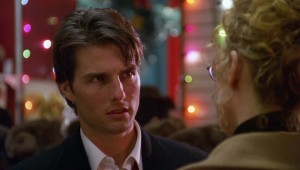
4. Eyes Wide Shut (dir. Stanley Kubrick)
Kubrick’s final film is a masterpiece, a journey into the dark heart of a man’s feelings of emasculation and sexual jealousy, taking him into a depraved underworld where he’s out of his element. It’s not exactly the thing you’d expect from two of the biggest movie stars in the world, but he somehow convinced them to give up two years of their acting prime to move to England (subbing for New York City) and do take after take of marital duels. The illicit thrills of Eyes Wide Shut come not from its peeks at orgies and hook-ups, but seeing the biggest celebrity in the world constantly be deceived, humiliated and defeated.
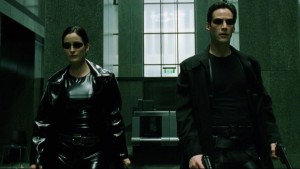
3. The Matrix (dirs. The Wachowskis)
The Wachowskis’ bold vision of the future (which certainly owes a debt to Grant Morrison’s The Invisibles) is still mind-blowing all these years later, thanks to bucking the trends of its contemporaries that eventually became commonplace, like its innovative camerawork and martial arts-influenced fight choreography. Of course, it’s also taken on added relevance as its creators have both come out as transgender, serving as a perfect allegory for gender identity. (It’s also been hijacked by alt-right assholes who want you to see the world in the same regressive way they do.) But it also helps that The Matrix is still cool as shit.
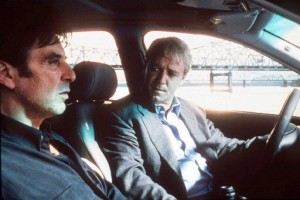
2. The Insider (dir. Michael Mann)
Michael Mann’s least showy film is also his most powerful, with top-notch work from Al Pacino and Russell Crowe, then still relatively unknown to American audiences. Crowe plays Jeffrey Wigand, a scientist who blows the whistle on the deadly additives tobacco companies put in their cigarettes to keep customers hooked. Pacino is the 60 Minutes producer forced to leave him hanging after corporate gets wind of the story that could mire them in litigation hell for decades. This is a movie about the human cost of doing the right thing, especially when you have to go it alone.
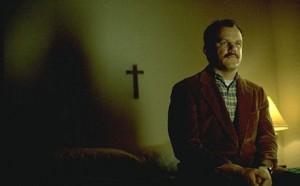
1. Magnolia (dir. Paul Thomas Anderson)
A sprawling, messy, wonderful tale of Los Angelenos looking for real connection, this is Paul Thomas Anderson’s masterwork. Getting next-level performances from great actors like John C. Reilly, Tom Cruise and Philip Baker Hall, he finds the beauty and pain in even the most despicable characters. You may find it too long. You may think the frogs scene doesn’t work. But oh, for a major studio to release a film that takes as many giant swings as this one.
Honorable Mentions
eXistenZ (dir. David Cronenberg)
Galaxy Quest (dir. Dean Parisot)
The Green Mile (dir. Frank Darabont)
The Iron Giant (dir. Brad Bird)
Man on the Moon (dir. Milos Forman)
The Mummy (dir. Stephen Sommers)
Office Space (dir. Mike Judge)
Ravenous (dir. Antonia Bird)
Run Lola Run (dir. Tom Tykwer)
Sleepy Hollow (dir. Tim Burton)
South Park: Bigger, Longer and Uncut (dir. Trey Parker)
The Straight Story (dir. David Lynch)
The Thomas Crown Affair (dir. John McTiernan)
Titus (dir. Julie Taymor)
Topsy-Turvy (dir. Mike Leigh)